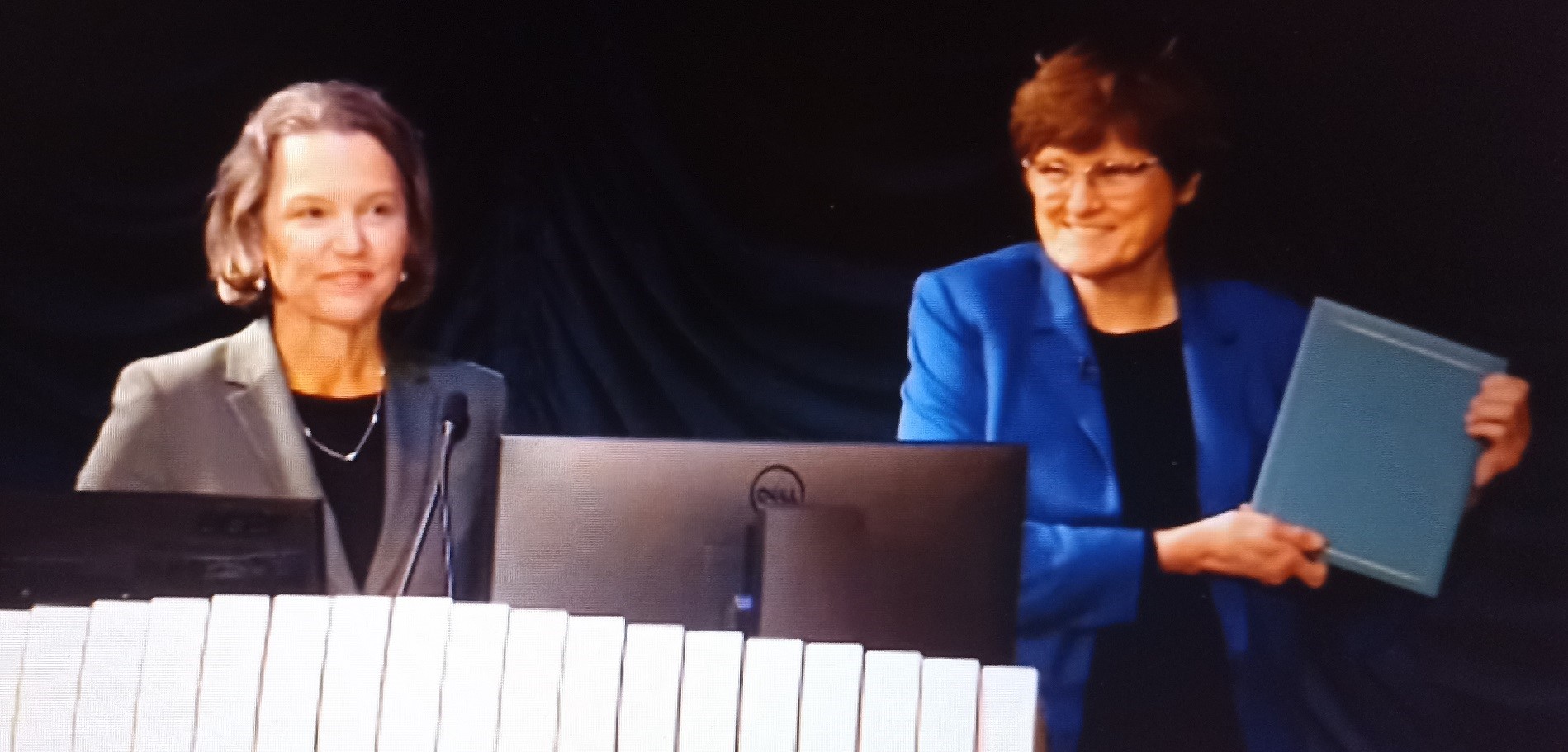
Six months have passed since the announcement of the winners of the 2021 Louisa Gross Horwitz Prize. The two honoured scientists, Katalin Karikó and Drew Weissman, gave a lecture at Columbia University in New York on 1 March 2022 and received the prestigious Horwitz Prize.
Established 55 years ago, the Louisa Gross Horwitz Prize is considered by the scientific world to be a precursor to the Nobel Prize.
The date has changed, the scenario remained the same
“COVID-19 is a contagious disease caused by severe acute respiratory syndrome coronavirus 2 (SARS-CoV-2). First identified in late 2019, the spread of SARS-CoV-2 worldwide sparked one of the deadliest pandemics in the past century. Decades of research on messenger RNA by Karikó and Weissman laid the foundation for the creation of incredibly effective COVID-19 vaccines that are helping to turn the tide of the pandemic.” With these words, Columbia University’s webpage offers a video interview with Katalin Karikó and Drew Weissman.
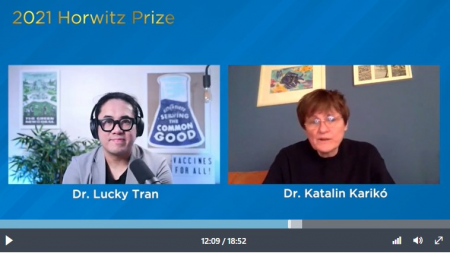
The occasion of the talk is that “Katalin Karikó and Drew Weissman have been awarded the 2021 Horwitz Prize for their pioneering research on Covid-19 vaccines”, we announced on 17 August 2021. Half a year ago, we also reported that Columbia University’s prestigious award ceremony was scheduled for 5 January 2022. The Covid-19 pandemic, however, has rewritten this plan too.
The Columbia University Irving Medical Center awards programme has been postponed to March 1, 2022. However, the script remained the same: the two distinguished scientists gave a lecture and then received the 2021 Louisa Gross Horwitz Prize - in a low-key, simple ceremony.
“Nucleoside-modified mRNA-LNP therapies” was the title of a presentation by Drew Weissman, Professor at the Perelman School of Medicine, University of Pennsylvania.
Katalin Karikó, Associate Professor at the University of Pennsylvania, Senior Vice President of BioNTech, gave a good-humoured presentation on the development of mRNA technology, the role of Szeged and other researchers in its development, and her personal contribution to the development of mRNA-based therapies.
The presentation in New York also covered the virtual space. On one of the online platforms, we were able to follow from all over the world, including Hungary, the explanations of Katalin Karikó, a scientist turned research professor at the University of Szeged, and her witty answers to the questions she asked and sent.
Columbia University pays a lot of attention to gender equality, says Katalin Karikó, research professor at the University of Szeged.
Decades of work behind the discovery
A laudation followed the scientist team’s presentation.
Katalin Karikó’s nutshell biography stated that she received her PhD in biochemistry from the University of Szeged in 1982. In her American workplaces, she has focused her decades of research on mRNA. Her goal was to develop in vitro transcribed mRNA for protein therapy. This was paved the way by her discoveries: the pioneering study of RNA-mediated immune activation and the observation that nucleoside modifications suppress RNA immunogenicity. She and Weissman jointly invented and patented the use of nucleoside-modified mRNA. This key discovery enabled the development of Covid-19 mRNA vaccines.
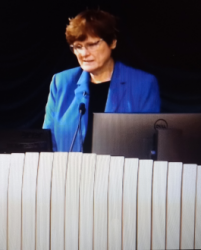 – All present have been blessed by the technology developed by Karikó and Weissman, but few are aware of the decades of tireless work behind the discovery, David D. Ho stressed. A professor of microbiology and immunology, he was named TIME Magazine's Man of the Year in 1996 for his development of a cocktail of drugs to treat AIDS patients. David D. Ho presented the achievements and merits of Katalin Karikó and Drew Weissman. The HIV virus researcher recalled the legendary meeting and conversation between Karikó and Weissman in the corridor of UPenn, at the photocopier.
– All present have been blessed by the technology developed by Karikó and Weissman, but few are aware of the decades of tireless work behind the discovery, David D. Ho stressed. A professor of microbiology and immunology, he was named TIME Magazine's Man of the Year in 1996 for his development of a cocktail of drugs to treat AIDS patients. David D. Ho presented the achievements and merits of Katalin Karikó and Drew Weissman. The HIV virus researcher recalled the legendary meeting and conversation between Karikó and Weissman in the corridor of UPenn, at the photocopier.
He explained that Katalin Karikó was initially interested in how mRNA could be used in stroke therapy. Weissman turned the researcher's attention to the world of viruses.
In 2005 they published their discovery: they presented a modified mRNA they had created that did not trigger a strong immune response in the body. The new technology can be used successfully against many types of viruses. A new platform in vaccine development has been created. This was a huge advantage in the fight against Covid-19.
– Several billion mRNA-based vaccines have been administered in the last two years. They have saved millions of lives worldwide and prevented millions of people from being admitted to hospital, concluded Professor David D. Ho in his tribute to the award winners.
Shadow after spotlight on the researcher
The Louisa Gross Horwitz Award recognises outstanding basic research in biology or biochemistry. The winners have been selected each year by Columbia University since the award was established in 1967.
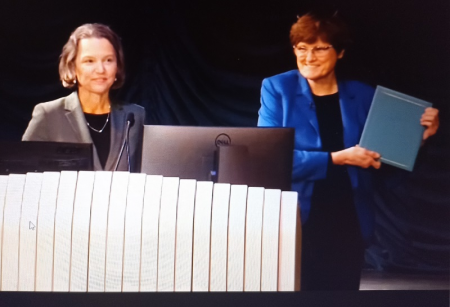
The 2021 Louisa Gross Horwitz Award was presented by Katrina Armstrong, CEO of Columbia University Irving Medical Center; Dean of the Faculties of Health Sciences and Vagelos College of Physicians and Surgeons; Executive Vice President for Health and Biomedical Sciences to Katalin Karikó and her research colleague.
– I am deeply honoured to receive this award. Earlier, in Hungary, I read about the Horwitz Prize and for years I followed the recipients. Therefore, it is an incredible feeling that I belong to this circle - said Katalin Karikó. – I’m just one of you, she beckoned to the Columbia University citizens, the researchers in the audience. – If it wasn’t for the pandemic, you wouldn't know my name. And I wish you didn't know it! For me, the satisfaction of having developed a technology that helps people has been more than enough. I did not want this level of recognition, I did not want the limelight, because then I would have been an actor - Katalin Karikó caused a stir in the room with her statement. – I feel comfortable in the laboratory. But as it happens, I try to use this attention to promote the research career and the scientific approach.
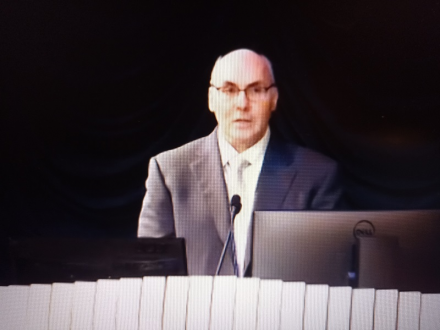
– This award is for two of us, but it is also for the thousands of scientists whose work has contributed to our achievements. I also think fondly of the researchers who will use and develop the results of our work and develop new therapies to treat diseases, said Drew Weissman, after thanking of the award. – As Kati said, I feel more comfortable hiding in a laboratory where I don’t have to talk to anyone, he admitted. – When I was asked about it, I said that I hadn't expected such a success, that it was beyond my imagination what was happening between us, and I was very sorry that it had to be a pandemic. But the modified mRNA is here, it's the basis of a fantastic new therapy with a lot of potential. I hope that many people will start to get involved with mRNA, this wonderful molecule!
SZTEinfo – R. E. Cs.-M., I. Ú.
Photo: Columbia University
Translated by R. Sz.

